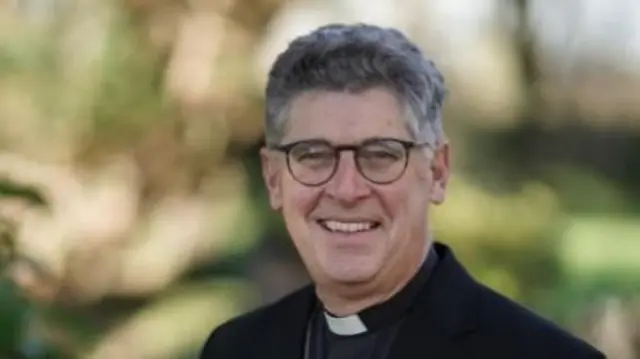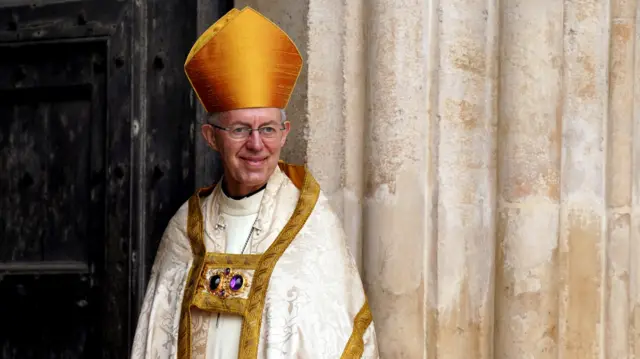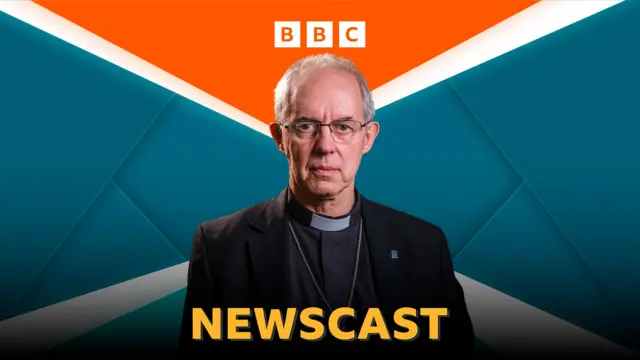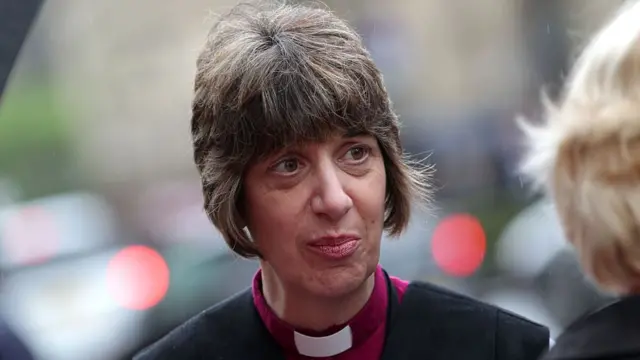Church of England 'not a safe institution', Bishop says as fallout continuespublished at 16:59 GMT 13 November 2024
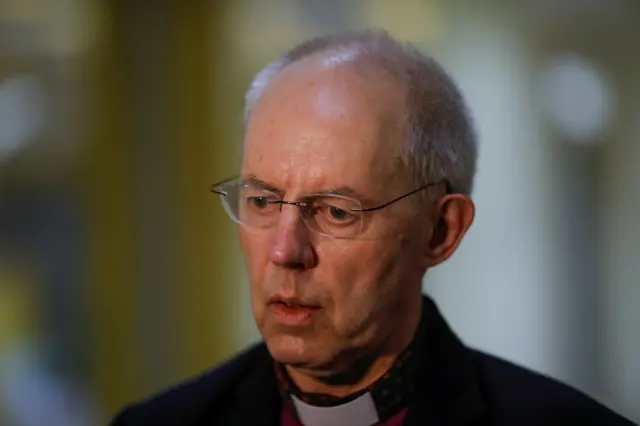 Image source, Reuters
Image source, ReutersWe're wrapping up our coverage of the aftermath of Justin Welby's resignation soon, but before we go here are the key takeaways from today:
Julie Conalty, the deputy lead bishop for safeguarding, said that in some ways, the Church is "not a safe institution", adding that the Church of England has an "institutional problem where we are not putting victims and survivors at the centre".
As a reminder, her comments are in relation to the damning report into abuse at Christian camps by barrister John Smyth in the 1970s and 1980s - which said Welby "could and should" have reported Smyth's abuse of boys and young men to police in 2013.
Victims of John Smyth met with senior church leaders today. Many of those affected by his abuse insist the Archbishop of Canterbury's unprecedented decision to stand down will not in itself be enough.
The BBC also spoke to two men who attended St John's School in Zimbabwe in the 1990s, when Smyth worked there as a teacher. One told the BBC how Smyth showered naked with boys at a summer camp, while another Smyth was known as a "creep" amongst students.
For the latest updates on this story, our colleagues have this piece on the what has happened today. For some analysis we have this piece, from the BBC's religion editor Aleem Maqbool, on the challenge the Church of England is facing.





